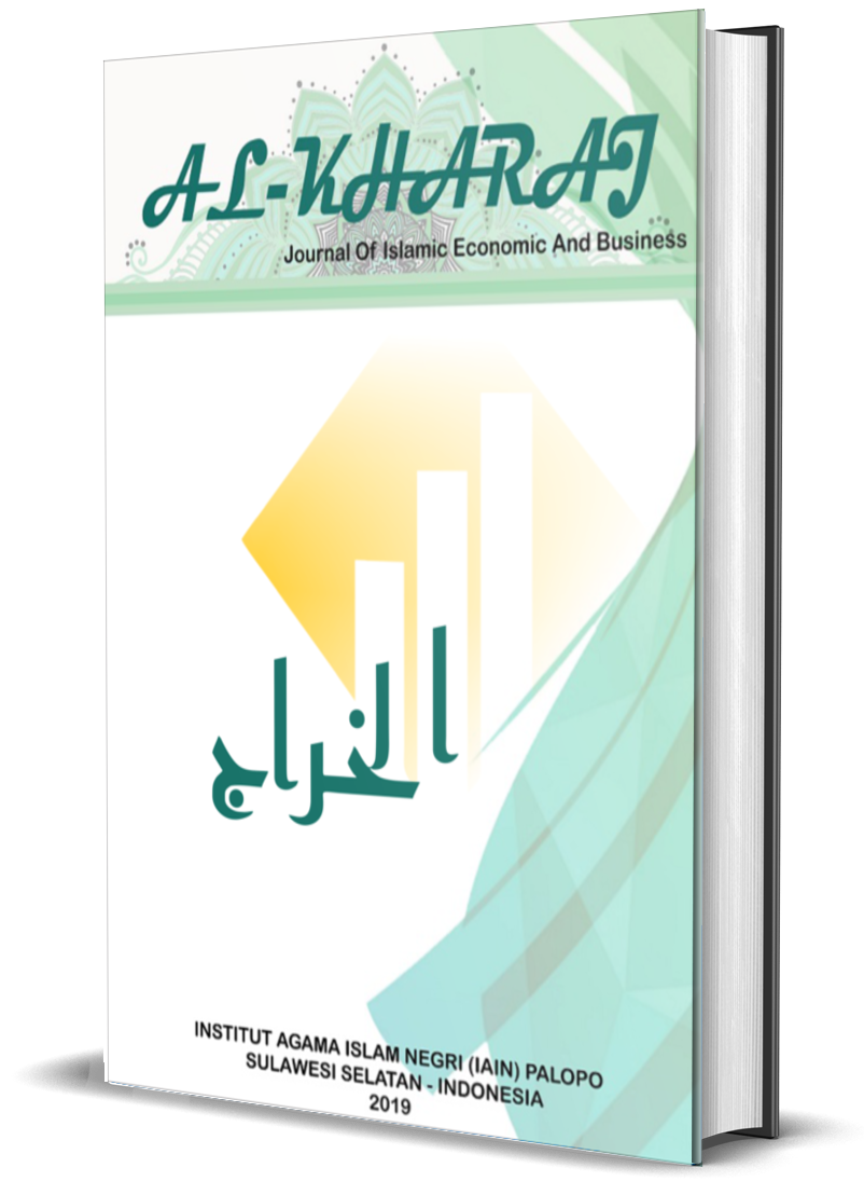The Influence of Collateral and Business Conditions on Non-Performing Loans with Debtor Character as a Moderating Variable at PT. BPR Duta Paramarta
DOI:
https://doi.org/10.24256/kharaj.v7i4.7983Keywords:
credit risk, loan performance, rural banks, behavioral finance, SME financingAbstract
This study investigates the influence of collateral and business conditions on non-performing loans (NPLs), with debtor character as a moderating variable, at PT. BPR Duta Paramarta. Using a quantitative explanatory design, data were collected from 100 debtors through loan records and structured questionnaires. Partial Least Squares–Structural Equation Modeling (PLS-SEM) with SmartPLS 4.0 was employed to analyze the relationships. The results indicate that collateral (β = 0.424, p < .001) and business conditions (β = 0.362, p = .001) significantly reduce the probability of NPLs. The moderating effect of debtor character on collateral was insignificant (β = –0.079, p = .254), suggesting that collateral remains the dominant predictor regardless of behavioral attributes. However, debtor character significantly moderated the relationship between business conditions and NPLs (β = 0.274, p = .011), amplifying repayment success when favorable traits are present. These findings extend the 5C credit evaluation model and highlight the importance of integrating behavioral assessment in rural banking risk management.
References
Altaf, Z., & Shah, F. (2025). Effects of credit score literacy and psychological traits on borrowing behavior: evidence from India using PLS-SEM. Future Business Journal, 11(1), 184. https://doi.org/10.1186/s43093-025-00601-y
Bhatt, T. K., Ahmed, N., Iqbal, M. B., & Ullah, M. (2023). Examining the Determinants of Credit Risk Management and Their Relationship with the Performance of Commercial Banks in Nepal. Journal of Risk and Financial Management, 16(4), 235. https://doi.org/10.3390/jrfm16040235
Handayani, T. ; P. E. (2020). Strategi Pengembangan UMKM Berbasis Produk Tradisional. Jurnal Ekonomi Dan Pembangunan, 21(2), 87–98.
Kaimenyi, M. (2025). Influence of Collateral Requirements on Performance of SMEs Business in Meru County, Kenya. International Journal of Accounting, Finance and Risk Management, 10(1), 62–71. https://doi.org/10.11648/j.ijafrm.20251001.14
Klein, N. (2013). Non-Performing Loans in CESEE: Determinants and Impact on Macroeconomic Performance. IMF Working Papers, 13(72), 1. https://doi.org/10.5089/9781484318522.001
Louzis, D. P., Vouldis, A. T., & Metaxas, V. L. (2012). Macroeconomic and bank-specific determinants of non-performing loans in Greece: A comparative study of mortgage, business and consumer loan portfolios. Journal of Banking & Finance, 36(4), 1012–1027. https://doi.org/10.1016/j.jbankfin.2011.10.012
Raynaldi, R., & Wahdiat, I. S. (2025). The Effect of Character, Capacity, and Collateral on Causing Non-Perfoming Loans in Banking in Indonesia. Dinasti International Journal of Economics, Finance & Accounting, 6(2), 960–967.
Saputra, E., Resmi, S., Nurweni, H., & Prasetyo, T. U. (2020). Do Character, Capacity, Capital, Collateral, and Conditions as Affect on Bad Loans. Journal of Accounting and Finance Management, 1(3), 17–28.
Tawas, H. N., Riyanti, F., Saputra, D., Abdillah, N., & Irianti, I. (2024). The Impact of Remote Work Policies, Employee Mental Health Support, and Agile Project Management on Organizational Resilience. Join: Journal of Social Science, 1(4). https://doi.org/10.59613/9zfx0v87
Thein, E. E., Niigata, A., & Inaba, K. (2024). Concentrated bank market and SMEs’ collateral issues: a study of the firms of developing Asian countries. Journal of Economic Structures, 13(1), 18. https://doi.org/10.1186/s40008-024-00338-x
Downloads
Published
How to Cite
Issue
Section
Citation Check
License
Copyright (c) 2025 Hamonangan Justinus Gultom, Erna Susilawaty Sebayang

This work is licensed under a Creative Commons Attribution-ShareAlike 4.0 International License.
Authors retain copyright and grant the journal right of first publication with the work simultaneously licensed under a Creative Commons Attribution-ShareAlike 4.0 International License. In line with the license, authors are allowed to share and adapt the material. In addition, the material must be given appropriate credit, provided with a link to the license, and indicated if changes were made. If authors remix, transform or build upon the material, authors must distribute their contributions under the same license as the original.









